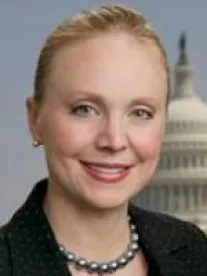There may be a legal hurdle or two for the Consumer Financial Protection Board to jump after the recess appointment of agency director Richard Cordray (the House Judiciary Committee held a hearing on the matter on February 15). But the consumer protection agency created under the Dodd-Frank Wall Street Reform Act of 2010 is pressing forward with its initiatives. Not too surprisingly, several recently proposed initiatives from the agency would stretch the agency’s authority into areas that extend beyond the industries targeted in the Dodd-Frank Act.
The day after the House Judiciary Committee debated the constitutionality of Cordray’s appointment (it doesn’t appear that the hearing was much more than some Republican caterwauling for the record), the CFPB released news of its first major regulatory proposal: to bring consumer credit reporting agencies and debt collection services under its scrutiny.
Those who are vaguely familiar with Dodd-Frank may be aware that the legislation gives the CFPB oversight of specific nonbank markets for (1) nonbank mortgage companies, (2) payday lenders, and (3) private student lenders. These are popular and understandable targets for probes of predatory lending practices. Headlining these industries as needing increased oversight is part of what made the legislation popular and easier for Congress to pass. So where do credit reporting agencies and debt collectors fit under the regulatory scheme? Quite simply, the Dodd-Frank Act also provides for CFPB oversight of other nonbank financial companies that are “larger participants of a market for other consumer financial products or services.”
Oversight of “larger participants”? What on earth does that mean? Congress doesn’t appear to have given clear guidance on what it meant by “larger participants,” leaving the term to the agency to define. As certain as the law of gravity is the law of bureaucratic power: What is not confined (by legislative delineation) necessarily will expand.
Don’t assume that the Dodd-Frank Act’s vagueness concerning what the CFPB would oversee was … well, an oversight. Congress often provides a broad policy concept and then delegates to administrative agencies the power to run with their interpretation and execution of that concept. Hence the impossibly cumbersome Code of Federal Regulations. Even so, however, the breadth of the power delegated to the new consumer protection agency is a bit much.
To the CFPB’s immense credit, it has published at least two requests for public comment to help it define “larger participants” and included an article on the agency’s blog regarding the matter. Indeed, the CFPB seems to be doing a pretty good job of explaining its steps and initiatives and of providing a user-friendly forum to keep the public apprised of their actions. And it is not entirely the agency’s fault that it is obeying the laws of bureaucratic power reach – it would be unnatural for the agency to try to constrict its authority.
What we should glean from the CFPB’s latest proposal, though, is that the CFPB will be running with its power and companies that provide any kind of consumer finance product must be aware of the possibility of government scrutiny.



 />i
/>i
